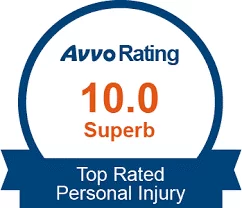On occasion, mistakes happen. Sometimes the defendant or the insurance company stalls on paying the settlement or underpays the settlement. Perhaps a judge makes an incorrect ruling of law. What recourse do you have, if things break down after the settlement or trial is negotiated, or after the verdict is in? Let’s discuss a few scenarios so you know what to expect and how to respond.
Appealing an Unfavorable Outcome
If the judge or jury doesn’t rule in your favor, or if you are awarded far less of a settlement than you were expecting, you may be able to appeal the verdict to the Georgia Court of Appeals. However, you don’t have a right to appeal simply because you disagree with the decision. Instead, there needs to be evidence that a legal mistake led to the wrong outcome. For example, you might want to appeal if:
- The judge misinterpreted the law regarding your case;
- The judge gave the jury incorrect instructions leading to a negative outcome; or
- One of the lawyers made a material legal mistake during the trial.
The Court of Appeals will only evaluate the case to make sure everything was done in accordance with the law. They aren’t going to re-examine the facts of the case, and they will only reverse the decision if the judges are convinced that any mistakes made had a significant effect on your verdict. Because of that a “win on appeal,” actually can result in a new after the settlement or trial, rather than a new result.
Also keep in mind that if you do intend to appeal, you must file notice of appeal within thirty days of the initial judgment.
If the Defendant Doesn’t Honor the Settlement
If you reached a settlement with the defendant or his insurance company—whether in or out of court—and the defendant fails to pay the agreed amount in a reasonable amount of time or by the agreed date, you have the right to ask the court to enforce the agreement. The judge will typically issue a judgment ordering the defendant to pay, and she may levy additional fines and interest for continued non-payment—or even hold the defendant/company in contempt of court.
Can You Appeal a Settlement?
The short answer: No, you can’t.
The longer answer is that you can try to renegotiate, but the other side is under no obligation whatsoever to listen.
Therefore, generally speaking, once you sign the settlement release and cash the check, you should operate under the premise that you’ve released the defendant of all further legal obligation. This fact is precisely why you should never let an insurance company hasten you toward accepting a quick settlement—it will almost always be too low, but by the time you realize it, it’s too late.
And because the point of a settlement is the parties have agreed to resolve the matter, once and for all, the court is probably only going to set aside an agreement if there is evidence of willful, egregious malfeasance (for example, breach of the settlement terms; fraud; or the contract terms are actually illegal) or a clear mistake.
Contact an Experienced Atlanta Injury Attorney
Accordingly, since you should presume that the settlement is final, it’s absolutely critical to work with an attorney. To learn more, call Greathouse Trial Law at (678) 310-2827 for a free consultation.


